
- Dr. Govinda Bahadur Tumbahang
Great guru ( great saint) Phalgunanda was born to father Jaganbaj Lingden and mother Hangsamati Begha Lingden on November 10, 1885 at Ibhang, Chukchinamba, ward number 2 of Mangsebung Rural Municipality in Ilam district. The first name given to him on the day his naming ceremony was Nar Dhoj Lingden. As his elder siblings had died after birth, his parents put bracelets on his wrists and anklets on his ankles to protect him from death following superstitious belief. After it, he was called by the name Phalam Singh. When he adopted Josmani path (a religious path), he was called Phalgunanda, a religious name, which has remained popular ever since.
During his time, Chandra Shamsher Rana, Bhim Shamher Rana, Juddha Shamsher Rana and Padma Shamser Rana were prime minister respectively. They were the de facto rulers of the country whereas the king was merely de jure , a figure head. People were suffering from hunger and disease. They had no sufficient food to feed themselves and their family members . They had no access to hospitals to get treatment for the diseases they were suffering from. They were living in the darkness of illiteracy and ignorance. Though prime minister Chandra Shamsher Rana had eradicated slave system and self-immolation system, the feeling of "superior" and "inferior" and "touchable" and "untouchable" on the basis of caste hierarchy was widespread. Women were exploited under gender-based discrimination. The Rana rulers were quite indifferent to the suffering of the people.
In those days, the Limbus were entirely illiterate. They had no consciousness that they should learn to read and write. The only one means for their livelihood was agriculture, but they were unable to produce enough crops to feed themselves and their family members for the whole year. They would produce some millet, maize, rice, wheat, but they would use them to produce beer and wine thereby making themselves victims of starvation. They would borrow money on high interest rate from a creditor in order to buy grains for food. However, they would be unable to pay it and would end up in surrendering their all- home and land to the creditor.
Their religious rituals were quite expensive. They had to sacrifice animals like pig, buffalo, goat and chicken to different deities along with the offering of wine and local beer. Similarly, they had to kill animals for meat and manage local liquor for birthday celebration, marriage celebration and death mourning and purification ceremony. Then, the Limbus were not free from debt. In fact, they would be born in debt and die in debt.
When he was eight years old, Phalam Sing became seriously ill. On the evening of the fourth day, an angel came to take him. He saw the angel, but his attendants did not see him. Phalam Sing got up, and followed him. The attendants followed the boy, but he was lost. The angel asked him to bathe in the Mai river, and beg for forgiveness for crossing the river with meat of an animal into his bag filled with rice and lintel which he had been carrying for his father working in a place over the river. When he did so, the angel disappeared, but all the swellings over his body vanished, and he became quite well. Suddenly, yuma mang (grandma deity) in gold ornament and dress, typical of a Limbu woman, appeared from the middle of the river. Then, golden letters with Limbu scripture fell down one by one to the boy's mouth, which he could read and understand easily due to her benediction. Yuma told him not to commit violence, not to tell a lie, to give high respect to women as they were creators, to pray to house deities in the morning and in the evening, not to eat meat and fish, not to have wine and beer, to preserve and promote native language, script, culture and scripture, and spread the light of education all over the community. Finally, she blessed him saying that he would be a great saint in the future, and she disappeared.
Phalam Sing was raised in extreme poverty. It was difficult for him to maintain his day-to-day life from agricultural yields. Then, he got recruited in the British army to earn a livelihood. From his early childhood, he was a vegetarian and teetotaler. He was always for peace, and against violence. During the first world war, he saw bloodshed and violence, which developed in him a feeling of hatred towards the war. His peace-loving heart could not go together with the profession of soldiering. He resigned from it and looked for a way to serve his community and the people.
Saint Josmani had introduced a new path in religion raising voices against the traditions of committing self-immolation and keeping slaves in addition to opposing racial and gender discriminations. Saints like Harish Chandra, Hari Bhakta, Dhiradji and others propagated it far and wide. However, saint Shashidhar was prominent and influential more than anyone else. He renounced all kinds of worldly things, and criticized social evils such as the feelings of "superior" or "inferior", "touchable" or "untouchable" on the basis of caste hierarchy. He held women in high esteem against the traditional concept of male dominated patriarchal society.
As the people of this religious path were like him in food habit and philosophical concept, Phalam Sing adopted this path. In 1993, he was named "Phalgunanda", by a priest. The followers of the kirant religion regard him as the great guru after the great gurus namely Yehang, Lepmuhang, Kandenhang, Mabohang and Sirijangga. As he wrote about sixty Kirant scriptures, he is honored as a source of mundhum ( scripture).
He initiated consciousness campaign against the social and religious evils prevalent in the community, and the resulting extreme poverty people had to suffer from. On Baisakh 25, 1988 V.S. he held a meeting at Labrekuti, Chokmagu in Panchthar district inviting representatives from das Limbuwan (ten Limbu provinces) and made them sign satya dharma muchulka (the truth-pledge document). The document contained pledges such as they would be vegetarian and teetotaler, they would give education to their daughter as equal as they would give to their son, they would use fruits instead of killing animals and chickens while performing birth, marriage and death rituals, they would not give or receive money or gold ornaments for marriage, they would not offer or receive pig carcass and wine as gifts, they would use home-grown clothes, they would learn and teach sirijangga script etc.. They conveyed this message to the people of all ten provinces of the Limbu land.He advised his disciples to pray to yuma sammang ( grandma deity) every morning and evening at home. He built 7 manghims (temples ) at different places of Kosi and Mechi districts in order to hold collective prayer to yuma sammang. He constructed a manghim at the bottom of Kumbhakarna mountain regarding it as the holy pilgrim place.
Those, who were jealous of him for his social works and ever increasing popularity, lodged a complaint against him charging him with inspiring people against the king and the prime minister in order to be king himself. He was arrested on the charge of sedition twice- once in 1990 V.S.,and then in 1995 V.S..He was presented before the then prime minister Juddha Shamsher Rana. The charges against him, however, proved false and he was acquitted of the charge of sedition. He died on 22 Chaitra, 2005 V.S. at Hangyak, Yambong in Panchthar district.
Great guru Phalgunanda has made significant contribution to the preservation and promotion of Sirijangga script and Limbu language having written and made people write Limbu scripture in Limbu language in Srijangga script. His adherents are followers of Satyahangma, Kirant religion, who pray to their home deities every morning and evening chanting the hymns written in Limbu language in Sirijangga script. Numerous religious books containing methods of praying to different home deities and performing different religious and cultural rituals, have been published. Priests must be proficient in reading and writing in this language and script. Now, a number of students are learning them in different manghims. Since it is mandatory to be a vegetarian, nonsmoker and teetotaler to be a disciple of great guru, those, who have been a habitual alcohol- drinker and a chain smoker will give up this habit. Traditional priests such as phedangma, yeba and samba sacrifice animals as offerings to deities in addition to a large quantity of local liquor. These are quite expensive. In contrast, the priests of satyahangma path simply offer flowers and fruits to such deities and complete the worship. Therefore, the devotees bears less economic burden. For these reasons, the number of satyahangma followers are increasing day by day now-a-days.
Nepal government has recognized his social and education contribution highly. It issued postal stamp of 15 rupees bearing his name in his honor in 2050 V.S.. He was declared national hero by the government on 16 Mangsir , 2066 V.S.. A rural municipality in Panchthar district has been named Phalgunanda rural municipality after his name. His full- body statue has been erected at Shantinagar in Ilam district. Similarly Nepal government has named " Phalgunanda highway" to the road which passes through Damak, Jhapa, Ilam, Panchthar, and ultimately joins the China border. Textbooks, which contain his biography, are taught in schools all over Nepal. In his honor, 150 manghims have been constructed in different parts of the country. The government decided to give a public holiday on his memorial day in 2072 V.S., and it is effective until now. It is with great respect that I pay tribute to his immortal soul.
The author is the former Chief of Koshi Province and retired professor of Linguistics at Tribhuvan University.


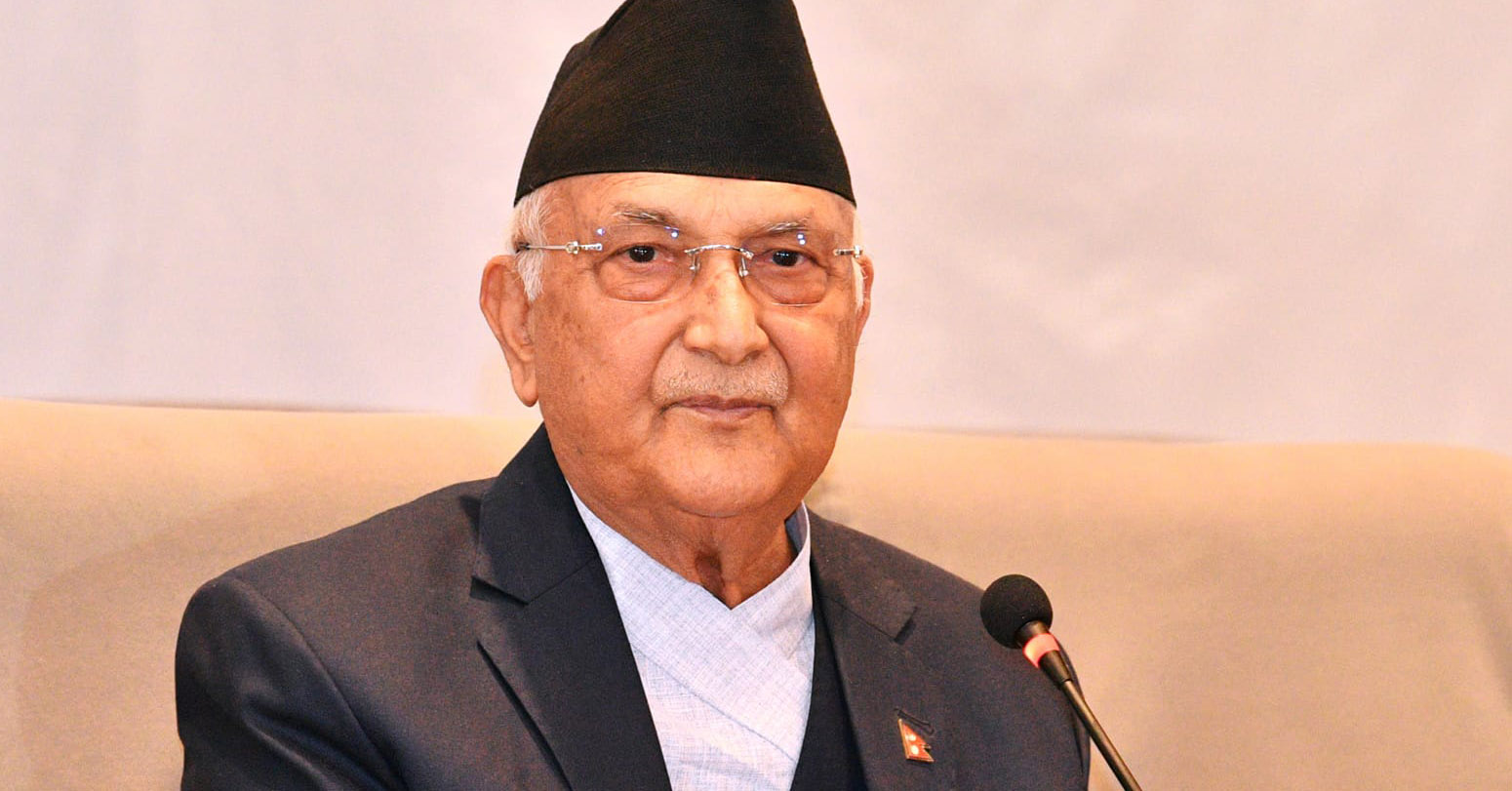


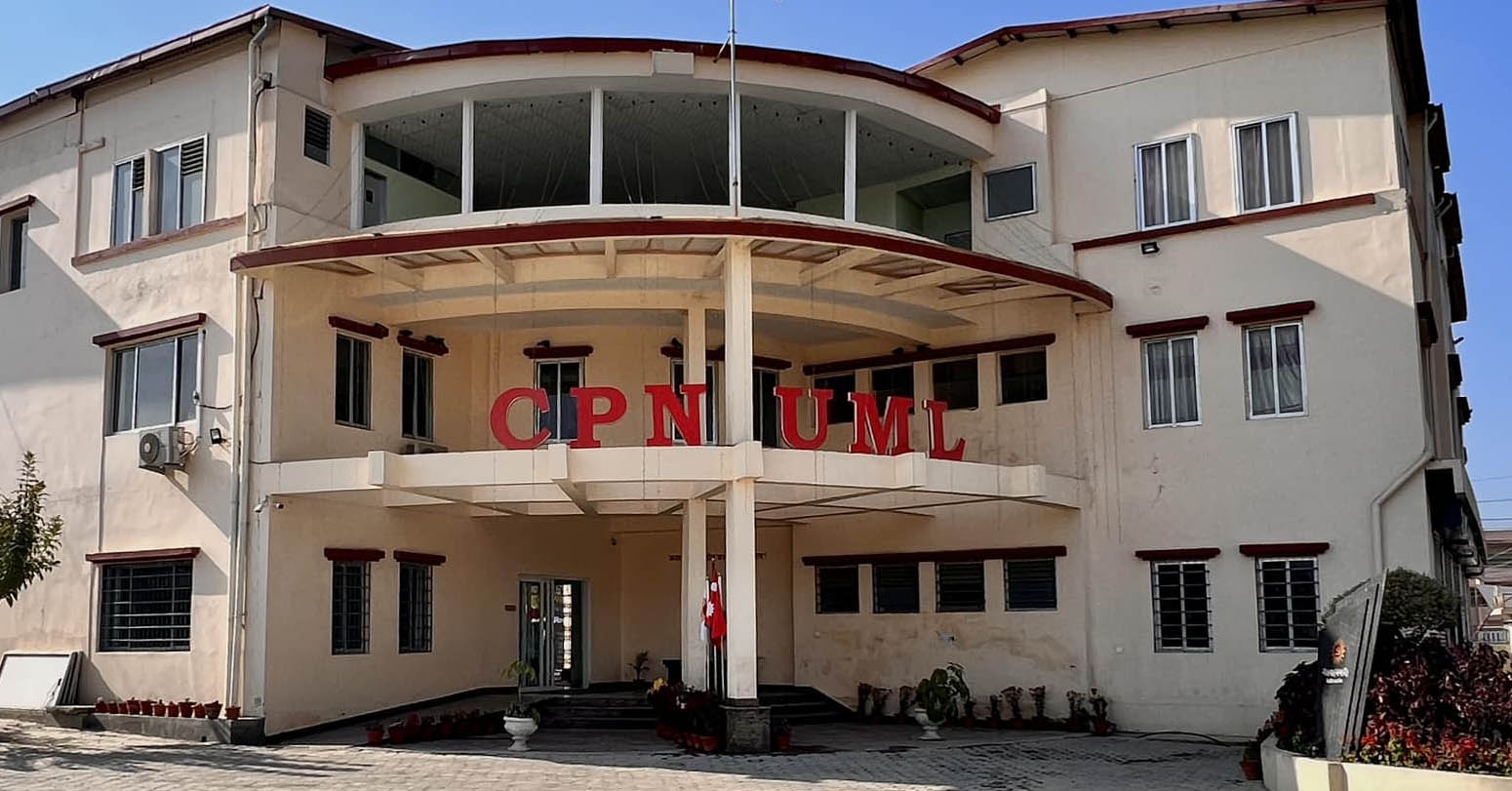



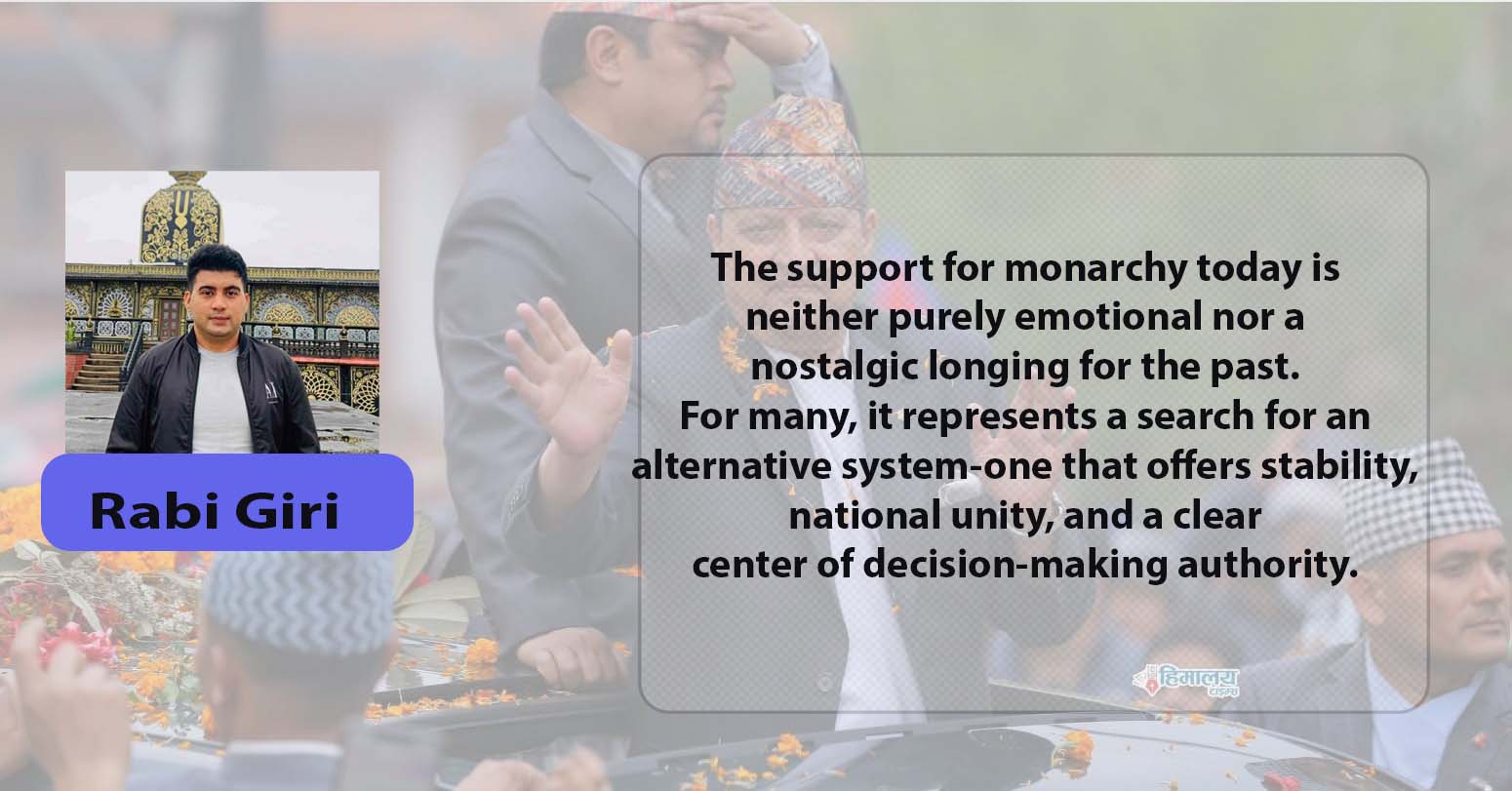


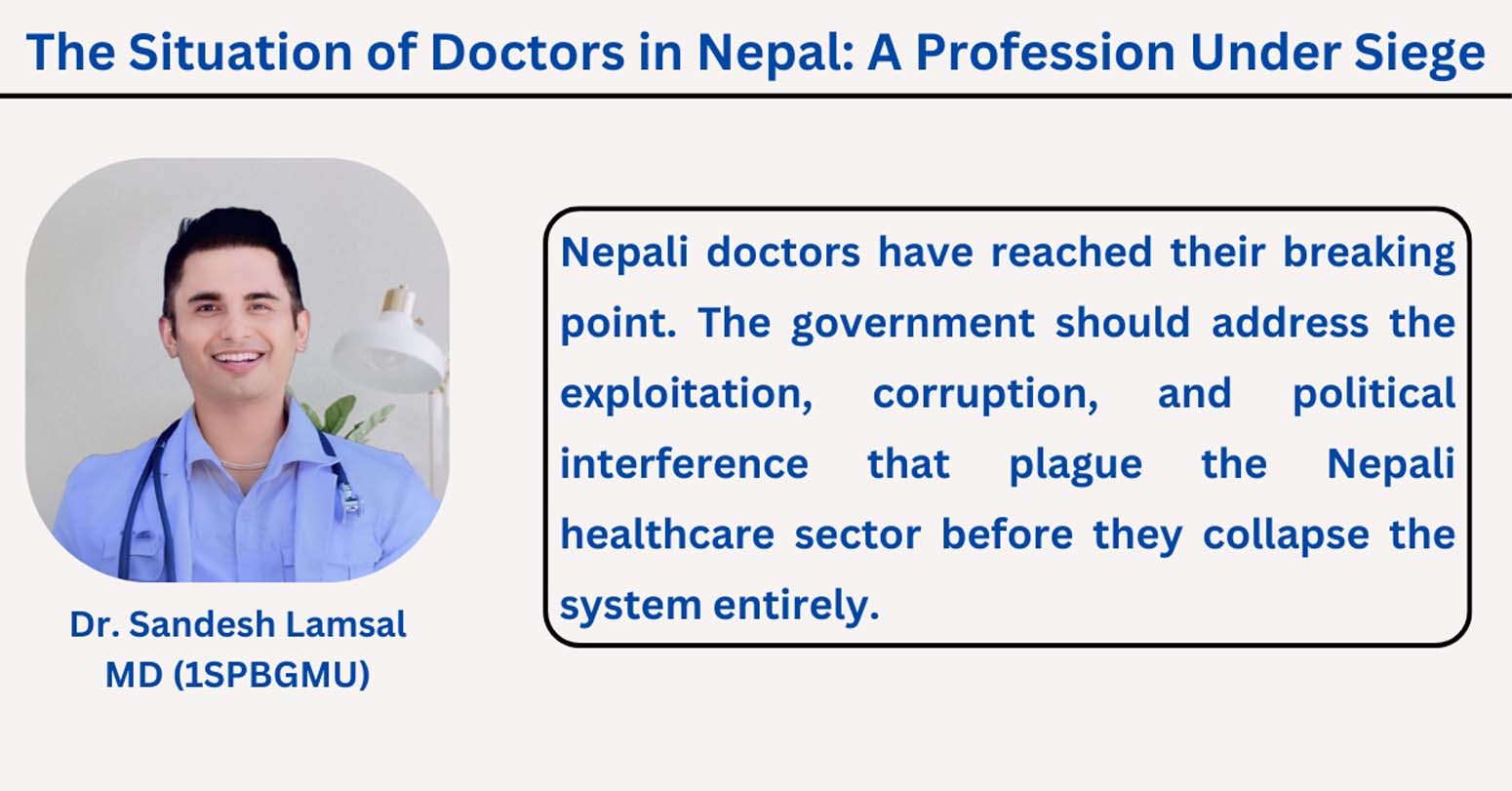

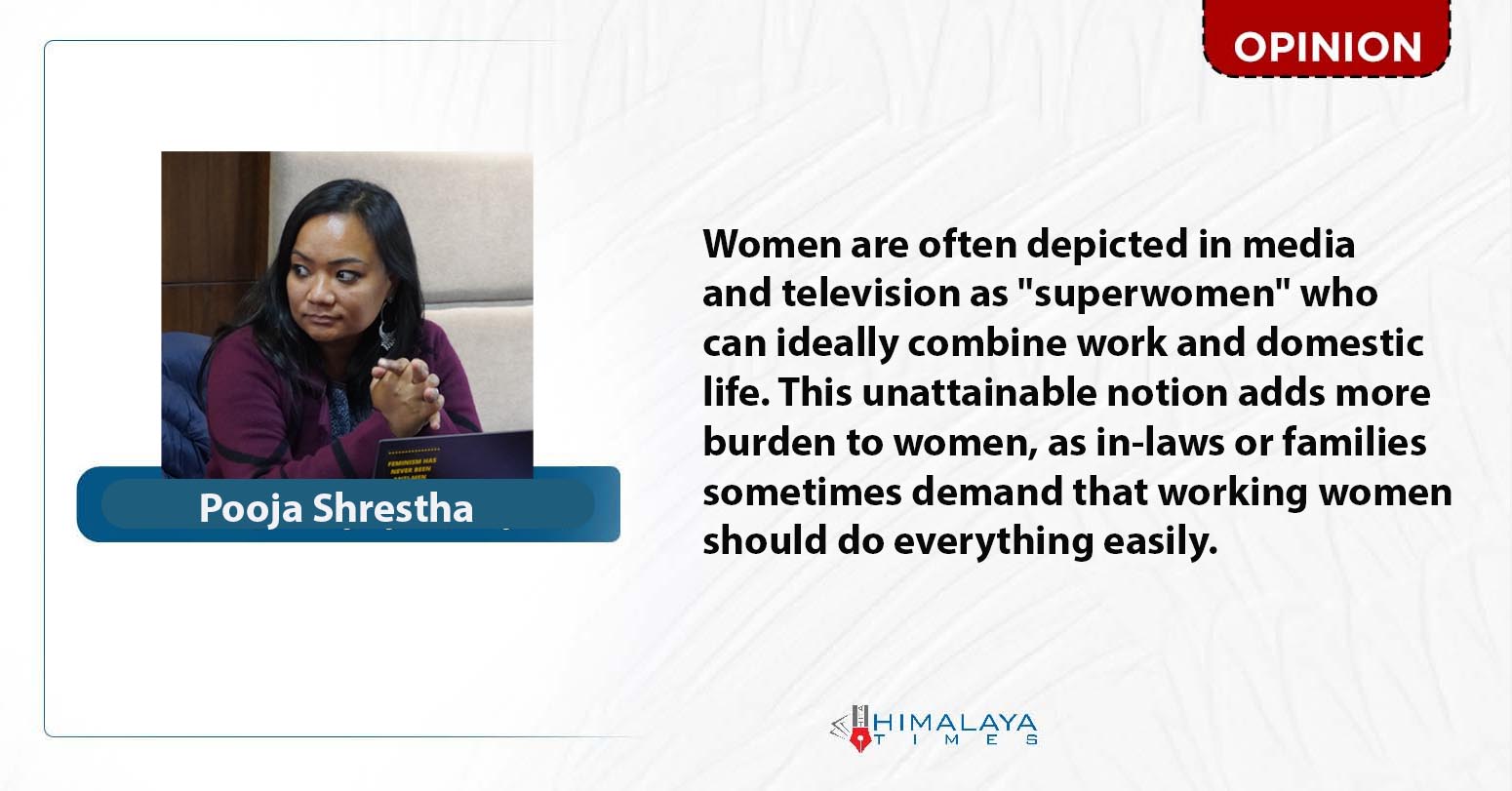

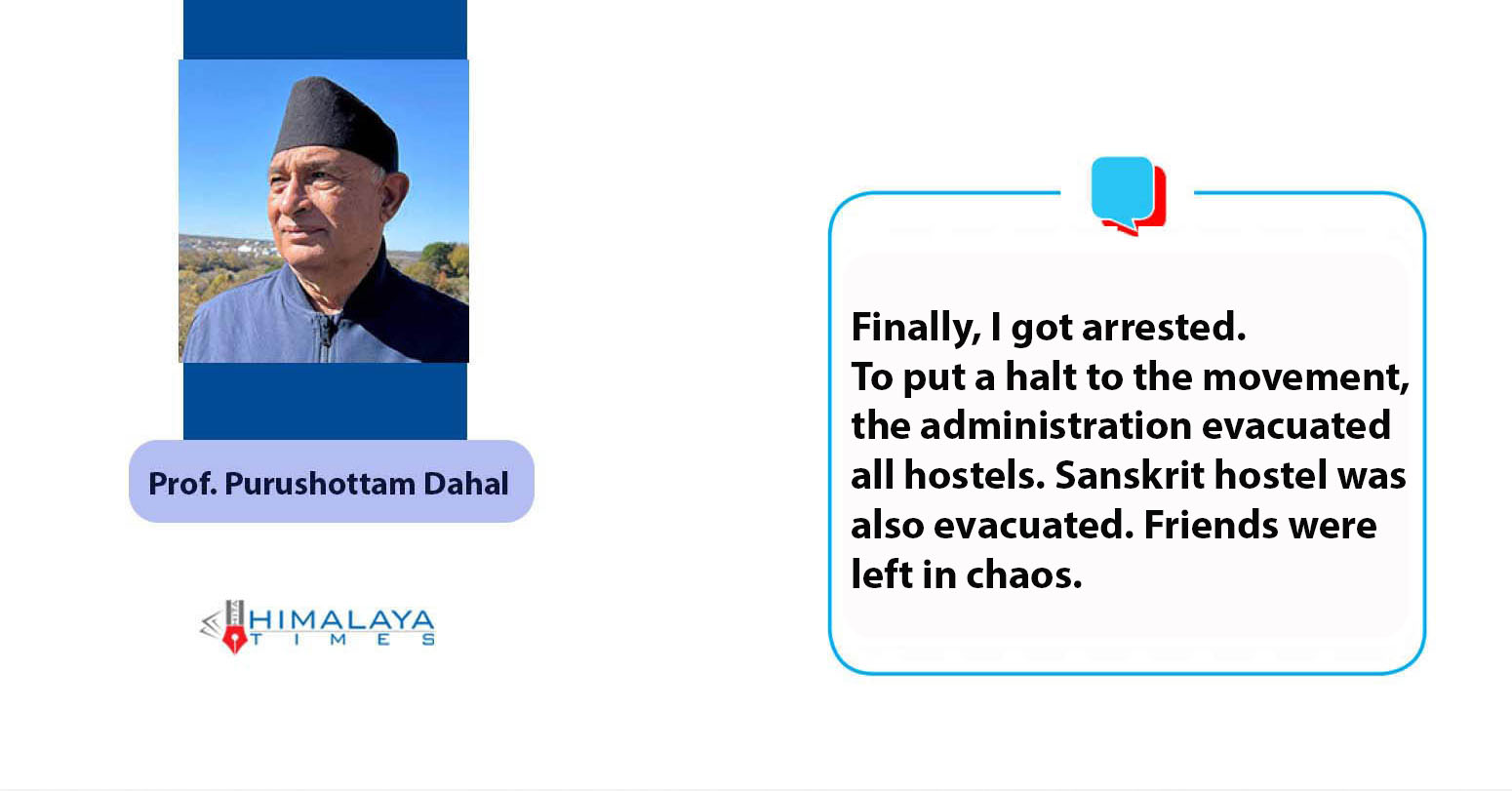

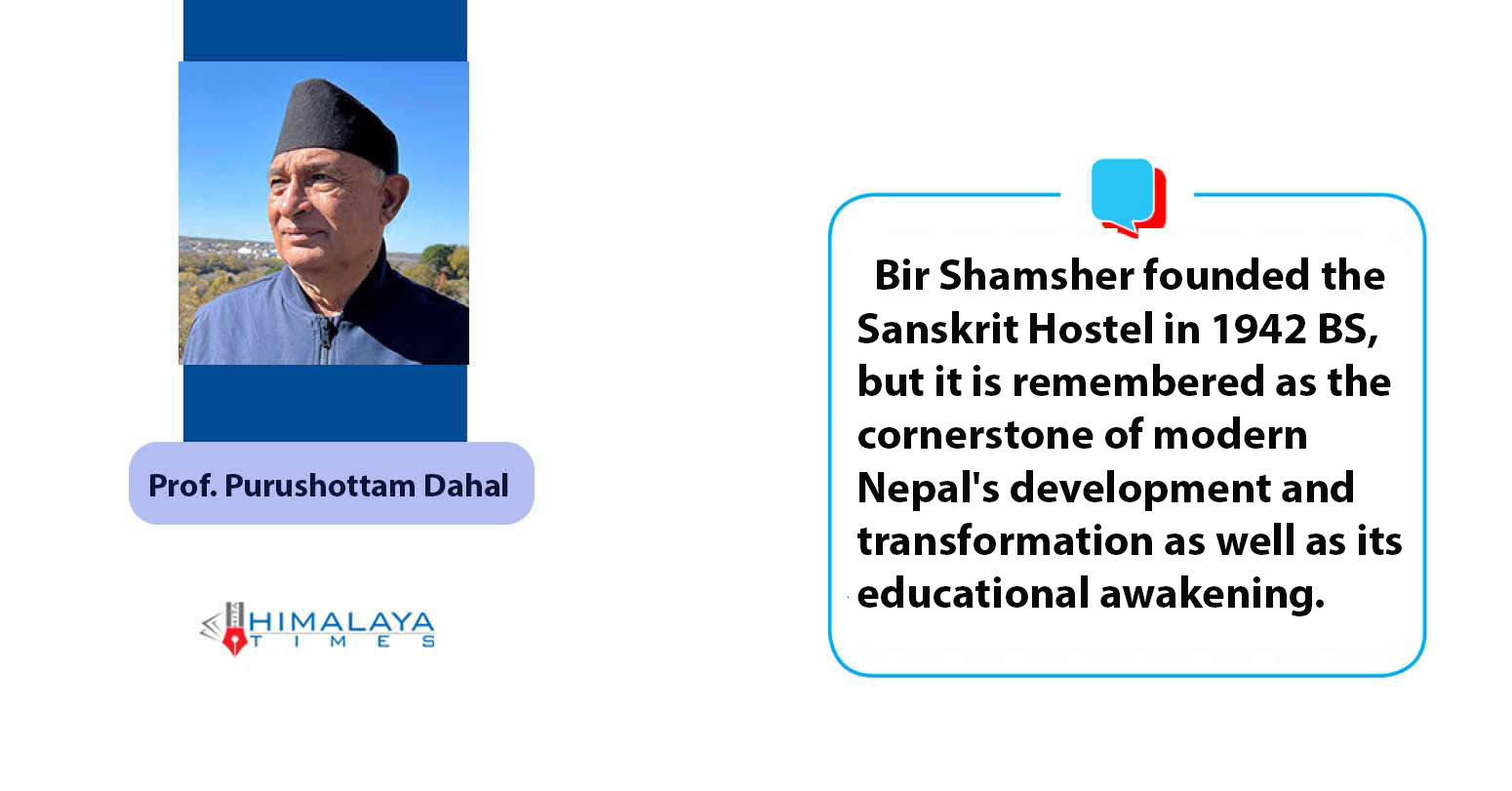
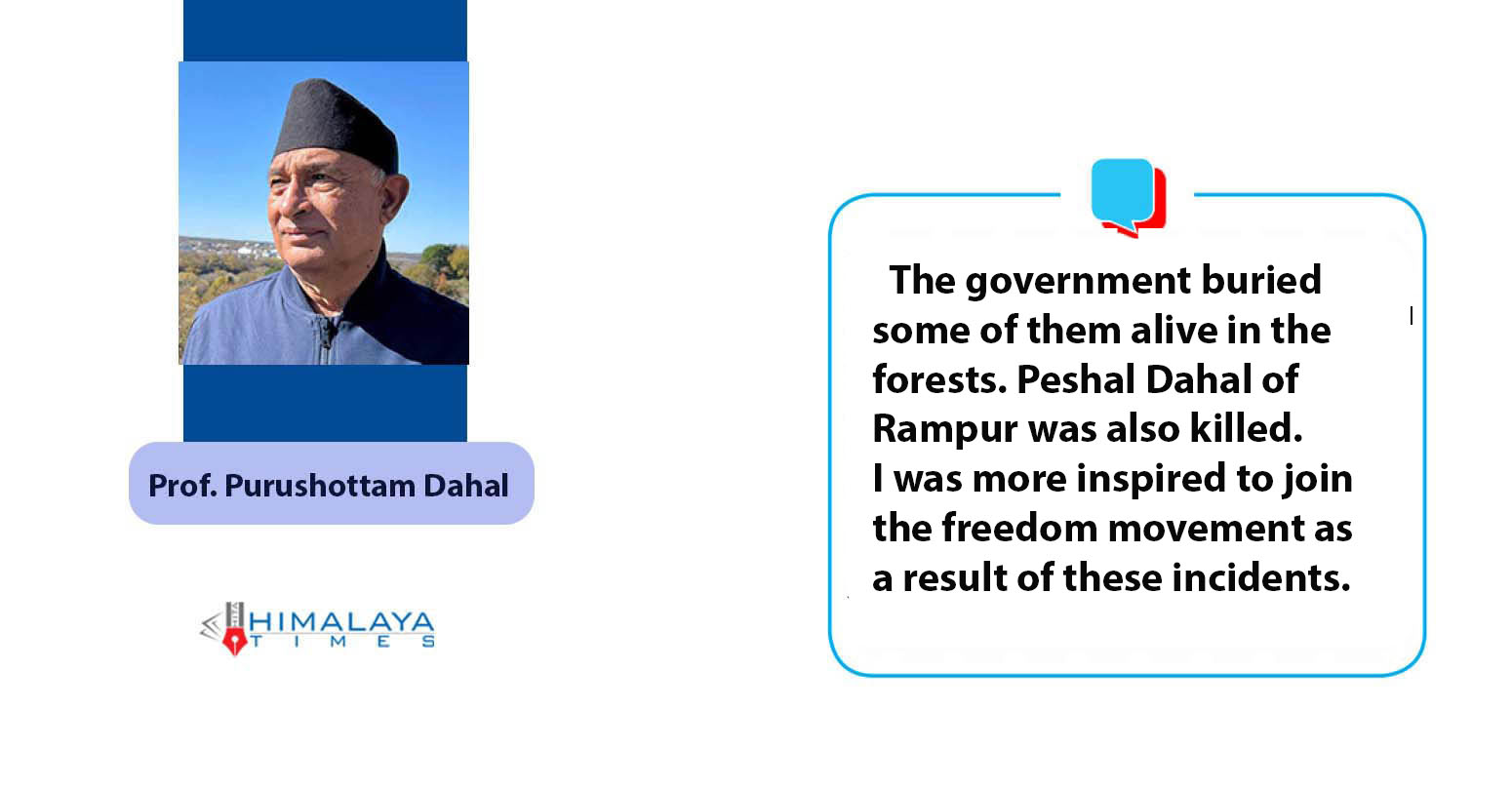
Middle-aged man spends millions to
Dr. Dharam Raj Upadhyay: Man
Breathing The Unbreathable Air
Comprehensive Data Protection Law Critically
Gender Differences In Mental Healthcare
Erosion of Democracy